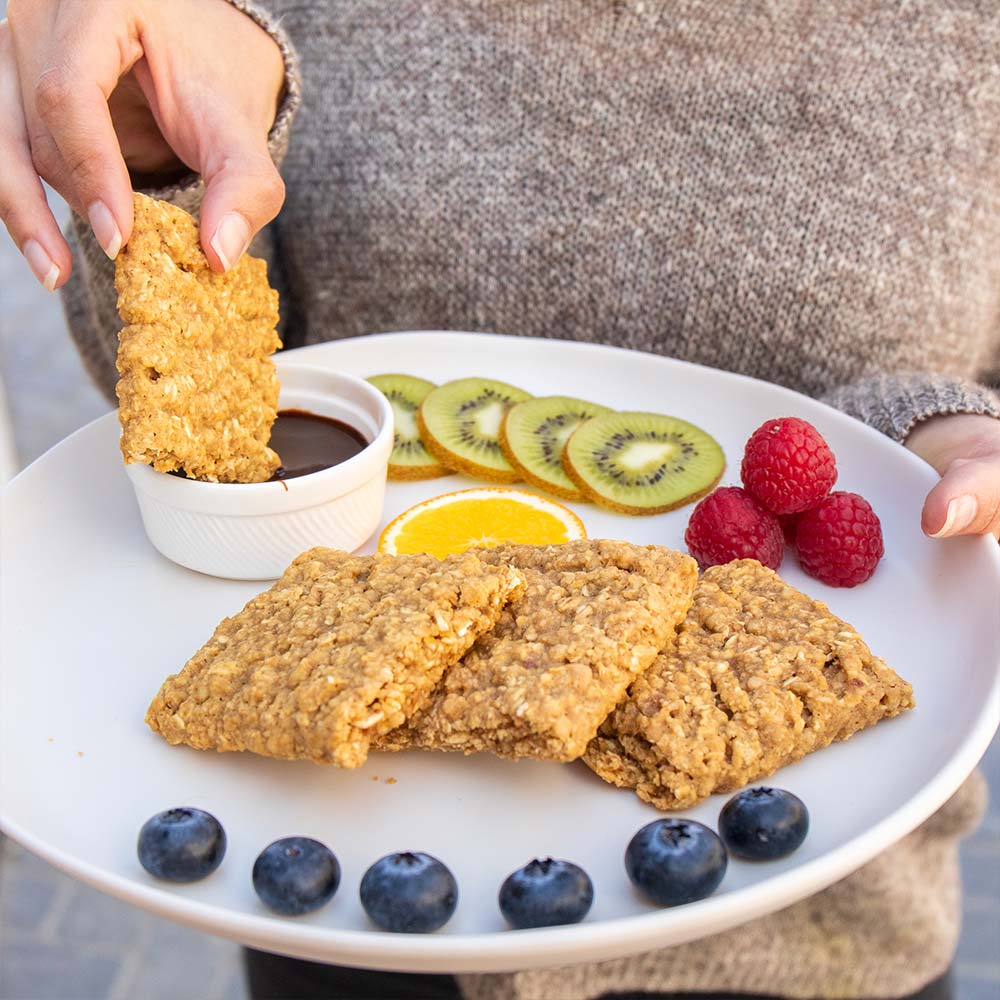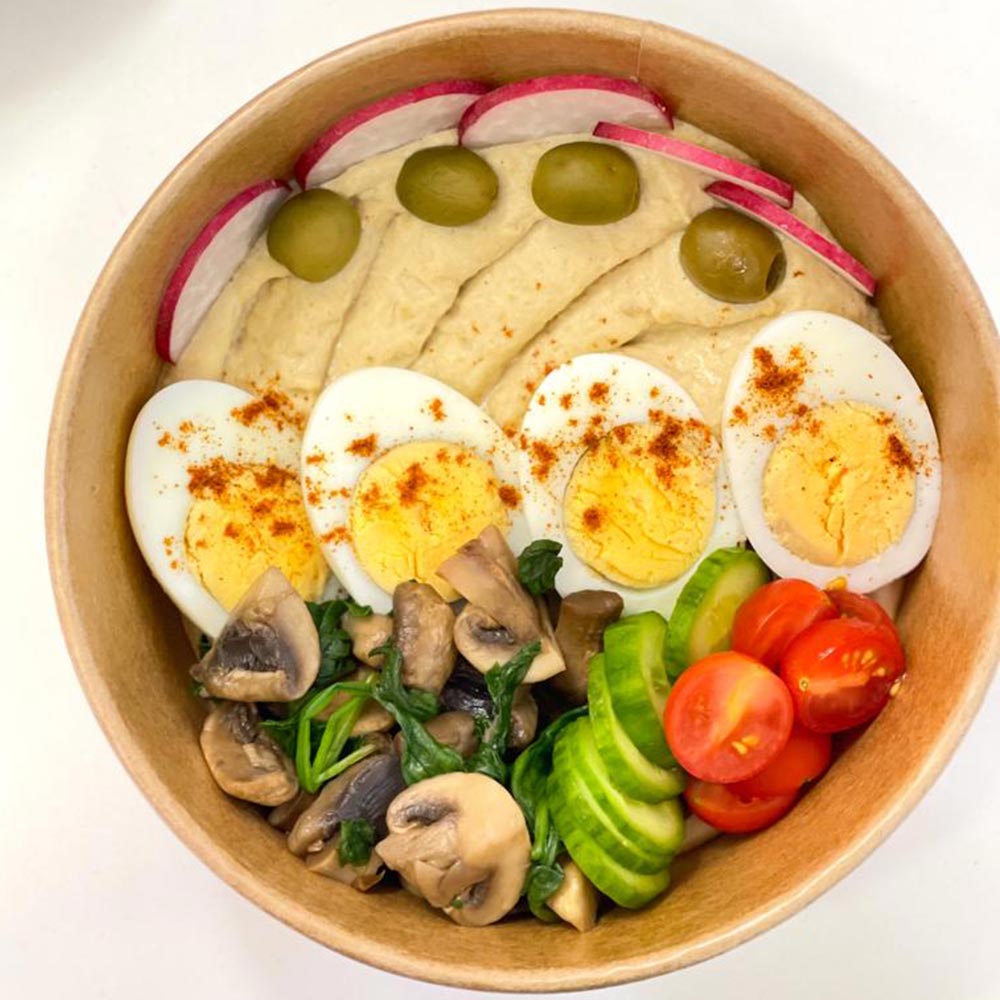Perfecting one's eating schedule to gain muscle is a crucial aspect of any effective muscle-building strategy. While hours spent in the gym contribute significantly to your progress, poor nutrition can undermine your efforts. In this comprehensive guide, we delve into the science behind meal timing and nutrient optimization for muscle growth. Whether you're a seasoned lifter or just starting, understanding how to fuel your body strategically can make all the difference. Let's explore the key principles that will help you maximize muscle gains, achieve your fitness goals and ensure your body has the nutrients it needs to grow stronger and bigger.

Understanding the Basics of Muscle Gain
At the core of muscle development lies the principle of
progressive overload, which involves pushing your muscles beyond their current
capacities through various forms of resistance training. This process initiates
micro-tears in muscle fibers, a phenomenon critical to muscle growth. The
subsequent phase, recovery, is where the actual muscle building occurs. During
this period, your body embarks on repairing the inflicted micro-tears. It is
through this repair process that muscle fibers become thicker and stronger, a
concept known as muscle hypertrophy.
For this recovery and growth phase to be efficient, a steady
supply of essential nutrients is imperative. Proteins and carbohydrates play
pivotal roles in this phase. Proteins, being the building blocks of muscle,
supply the amino acids necessary for the repair and growth of muscle fibers. On
the other hand, carbohydrates are crucial for refilling the body’s energy
reserves, which are significantly depleted during intense workouts. This replenishment
not only supports the recovery process but also prepares the body for future
training sessions.
Understanding this balance between resistance training, nutrient supply, and recovery is fundamental in setting the stage for effective muscle gain. Engaging in consistent and challenging workouts creates the demand for muscle growth, while proper nutrition provides the resources necessary to meet this demand, facilitating an environment conducive to muscle development.

The Significance of Meal Timing for Muscle Growth
Optimizing when you eat is as critical as what you eat when
it comes to building muscle. Strategically scheduled meals work in tandem with
your body’s natural processes to enhance muscle recovery, improve workout
performance, and accelerate muscle growth. By consuming nutrients at key
moments, you're able to capitalize on the body's heightened ability to absorb
and utilize these nutrients, particularly around workout times.
Introducing protein into your system at regular intervals,
specifically every 3 to 4 hours, ensures a constant nutrient supply to muscles,
thereby facilitating ongoing repair and growth. This frequent intake helps to
stimulate muscle protein synthesis, a vital process in muscle hypertrophy,
throughout the day. Carbohydrates, when timed correctly, especially around
workouts, serve to replenish muscle glycogen stores. This not only aids in
recovery but also primes your muscles for future training sessions, allowing
for increased intensity and duration.
Incorporating a pre-workout meal that blends carbohydrates and protein can significantly affect your ability to train harder and longer, while a post-workout meal or snack rich in these macronutrients is crucial for kickstarting the recovery process. By aligning your meal timing with your body's needs, you optimize the muscle-building potential of each workout, making each session count towards your goal of muscle gain.

Crafting Your Pre-Workout Meal
A well-crafted pre-workout meal is your first step towards
an efficient and powerful training session. It's all about balance: combining
the right amounts of complex carbohydrates and lean proteins to fuel your
exercise while preventing muscle catabolism. Ideally, this meal should be
consumed 2-3 hours before you hit the gym or start your workout routine to
allow your body enough time to digest and begin converting food into energy.
Complex carbohydrates are your main energy source, releasing
glucose into your bloodstream gradually and ensuring sustained energy
throughout your workout. Options like oatmeal, quinoa, or whole-grain bread are excellent choices. Pair these with lean proteins such as chicken breast,
turkey, fish, or plant-based alternatives like tofu or tempeh to support muscle
preservation and recovery.
Creative combinations could include a bowl of oatmeal topped with sliced almonds and whey protein, a turkey and avocado wrap with whole grain tortilla, or a quinoa salad with mixed vegetables and grilled chicken. Remember, the goal is to enter your workout energized and ready, without feeling overly full or sluggish. Adjust portion sizes according to your tolerance and the intensity of your upcoming workout to maximize your performance and set a strong foundation for post-workout recovery.

The Importance of Post-Workout Nutrition
In the critical window following exercise, your body is
primed and eager to receive nutrients that can kickstart the recovery process.
This phase, often termed the "anabolic window," is when the body's
metabolic rate is elevated, and its ability to shuttle nutrients to depleted
muscles is at its peak. The aim here is to provide a swift infusion of proteins
and carbohydrates to accelerate muscle repair and replenish energy stores that
were consumed during your workout.
For proteins, opting for sources that the body can quickly
absorb is key. Whey protein, for instance, is a favored choice among athletes
due to its rapid digestion rate and high-quality amino acid profile, which
supports the repair of muscle fibers. Combining this with carbohydrates that
also digest rapidly—like fruit or a honey-drizzled whole-grain toast—ensures
that glycogen stores are promptly restored.
This immediate consumption of a nutrient-dense meal or snack
assists in reducing muscle soreness, promotes muscle growth, and enhances
overall recovery. For those constantly on the move, a protein shake combined
with a piece of fruit or a small serving of a sports drink can provide a
convenient yet effective post-workout nutrition solution.
Integrating this strategic approach to post-workout nutrition into your regimen is crucial for those aiming to maximize their muscle gain and recovery, ensuring each training session's efforts are fully capitalized upon.

Structuring Your Daily Eating Schedule
To optimize muscle gain through your diet, the establishment
of a consistent daily eating routine is paramount. This regimen should ideally
consist of three primary meals coupled with two to three snacks, evenly
distributed throughout the day. Such an arrangement facilitates a steady stream
of nutrients to your muscles, aiding in their growth and recovery, while also
keeping your metabolism humming efficiently.
For those aiming to build muscle, prioritizing a slight
caloric surplus is beneficial, focusing on nutrient-rich foods. Begin your day
with a breakfast rich in proteins and complex carbohydrates to jumpstart your
metabolism and fuel your morning activities. Mid-morning and afternoon snacks
should be strategic, incorporating proteins and healthy fats to sustain energy
levels and support muscle synthesis. Lunch and dinner should be balanced,
comprising quality protein sources, whole grains, and plenty of vegetables to
ensure a comprehensive intake of vitamins and minerals.
It's important to align your meal times with your workout schedule. Consuming a snack or meal that includes proteins and carbohydrates within an hour after exercising can significantly enhance recovery and muscle building. This meticulous approach to your eating schedule not only supports your training goals but also ensures your body is consistently nourished throughout the day, laying a strong foundation for muscle growth.

The Role of Supplements in Your Muscle Gain Diet
In the pursuit of muscle gain, supplements can serve as
valuable allies, filling nutritional gaps and enhancing recovery and growth
when used alongside a well-balanced diet. Key supplements like whey protein,
creatine, and branched-chain amino acids (BCAAs) have garnered popularity for
their proven benefits in supporting muscle synthesis and repair. Whey protein
stands out for its quick absorption rate, delivering essential amino acids
swiftly to muscle tissues post-exercise, a crucial factor in stimulating muscle
protein synthesis. Creatine, another well-researched supplement, enhances
strength and power, enabling athletes to perform higher-intensity workouts more
effectively, thereby contributing to muscle hypertrophy. BCAAs, particularly
leucine, play a pivotal role in the muscle recovery process, mitigating muscle
damage and soreness post-training.
It's essential, however, to approach supplementation with a strategy that complements, not overshadows, the consumption of whole foods. Supplements should be seen as an addition to a diet rich in proteins, carbohydrates, fats, vitamins, and minerals from natural food sources, rather than a primary source of nutrition. Incorporating supplements should also be done with a clear understanding of your specific training needs and goals, as well as any dietary restrictions or health considerations. Consulting with a healthcare professional or a certified nutritionist can provide personalized guidance, ensuring that your supplementation strategy effectively supports your muscle gain objectives without compromising your overall health.

Hydration and Muscle Growth
The importance of maintaining adequate hydration levels
cannot be overstated in the context of muscle development. Water plays a
pivotal role in virtually all bodily functions, including those essential for
muscle repair and growth. Adequate fluid intake is critical for facilitating
the transport of nutrients to muscle cells, the elimination of metabolic waste
produced during intense workouts, and the maintenance of cell volume and muscle
function.
Dehydration, even in its mildest form, can lead to a decrease
in physical performance, reduced stamina, and a longer recovery time between
workouts. This is because water is integral to maintaining blood volume, which
ensures that oxygen and nutrients are efficiently delivered to working muscles.
Furthermore, hydration influences the body's electrolyte balance, which is
crucial for muscle contractions and overall neuromuscular coordination.
For athletes and individuals focused on gaining muscle, it's
recommended to consume fluids regularly throughout the day, not just during
workouts. This includes starting the day with a glass of water and continuing
to sip on water or electrolyte-rich fluids. Paying attention to the body's
thirst signals and the color of your urine, which should be light yellow, are
practical ways to monitor hydration status.
Incorporating hydrating foods into your diet, such as fruits and vegetables with high water content, can also contribute to overall fluid intake. These dietary strategies, combined with regular water consumption, ensure that your hydration needs are met, supporting your muscle gain goals and overall health.

Adjusting Your Eating Schedule Based on Results
Navigating your muscle-building journey requires a
responsive and flexible approach to your eating schedule and dietary habits. As
your body adapts to your workout regimen and evolves, so too should your
nutritional strategy. It's essential to monitor your progress closely, paying
attention to changes in muscle mass, energy levels, and overall performance.
These indicators can provide valuable insights into how effectively your body
is responding to your current eating plan.
If you notice a plateau in muscle gain or a decline in
workout performance, it may be time to reassess your caloric intake,
macronutrient ratios, or meal timing. For example, increasing your protein
consumption slightly or adjusting the timing of your carbohydrate intake around
workouts could reignite progress. Additionally, the introduction of new
exercises or changes in workout intensity and duration necessitates a
reevaluation of your energy needs to ensure your diet supports your evolving
training demands.
Regular consultations with a nutritionist or fitness coach can offer personalized recommendations based on your specific results and goals. They can help identify any nutritional deficiencies or opportunities to optimize your meal plan for enhanced muscle growth and recovery. Embrace the process of fine-tuning your diet as an ongoing component of your fitness journey, recognizing that flexibility and adaptation are key to achieving and sustaining your muscle-building objectives.

Conclusion
Crafting an effective eating schedule to support muscle
growth is a nuanced endeavor, hinging on more than just frequent meals or high
protein intake. It's about synchronizing your nutritional intake with your
body's needs, particularly around your training regimen to optimize muscle
recovery and growth. The key to this is not only what you eat but when you eat it,
with a focus on maximizing nutrient absorption and utility by your body. This
includes tailoring your pre- and post-workout meals to fuel your exercises and
facilitate recovery, respectively, and maintaining a steady supply of nutrients
with meals and snacks distributed throughout the day.
Adaptability is crucial in this journey. Your body's
response to your diet and workout plan will evolve, necessitating adjustments
to your eating schedule, caloric intake, and macronutrient distribution to keep
pace with your muscle gain goals. Close monitoring of your progress and being
open to dietary tweaks will ensure continued advancement toward achieving your
desired physique.
In sum, a successful strategy for muscle gain involves a
comprehensive approach that encompasses not just diligent training but also a
meticulously planned eating schedule. By integrating these elements, you're
well on your way to enhancing your muscle-building efforts, ensuring every
workout and meal contributes positively to your ultimate goal of muscle growth.






























